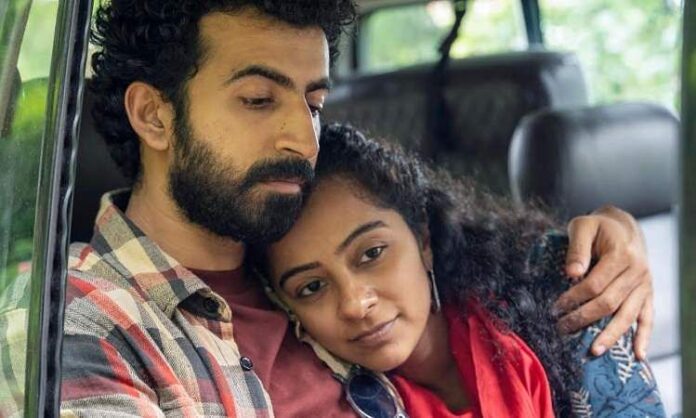In Prasanna Vithanage’s new film Paradise, an individual’s attitude toward animals becomes a measuring gauge for their humanity. A young filmmaker gets enthusiastic about a hunting trip because he yearns for venison meat. On the other hand, his wife has a different plan in mind. A senior police officer yells at a dog. At a pivotal moment later in the film, the cop expresses his loyalty to this young filmmaker by calling himself a dog. In a previous scene, he tells him that venison meat is delicious.
These are just a few of the many layers in the Sri Lankan filmmaker’s splendid work, which brings up the master-slave/man-animal dynamic through inventive parallels in various instances. There’s also the parallel to Ramayana, without making it seem forced. Everything makes complete sense. Paradise also makes a statement about the stories (myths and otherwise) people tell each other and their multiple interpretations. This quality strongly resonates in the film’s closing moments, which blew my mind.
Director: Prasanna Vithanage
Cast: Roshan Mathew, Darshana Rajendran, Mahendra Perera, Shyam Fernando
Paradise, which just premiered at the Busan International Film Festival, has characters conversing in Malayalam, Sinhala, Tamil and Hindi. Roshan Mathew is Kesav, a filmmaker pitching a new project to an OTT giant. Darshana is Amritha, his wife, who accompanies him on a Sri Lankan tour while the country is undergoing a severe economic crisis, the film’s backdrop. They’re here to celebrate their fifth anniversary. Meanwhile, Kesav is gearing up to start pre-production on his project. Chaos rears its ugly head when a robbery renders the couple devoid of technology.
Making us wonder how helpless we would all become when we lose our devices, to which we are constantly attached, is a minor conflict compared to a multitude of other conflicts Prasanna brings up in Paradise, which essentially depicts an agnipareeksha, a trial by fire for the couple whose relationship gets put to an intense test. The combined powerhouse talents of ace cinematographer Rajeev Ravi and ace editor Sreekar Prasad work in unison to deliver a blistering drama that maintains a vice-like grip on us throughout its runtime without giving any hint as to what lies ahead until, of course, the inevitable finally presents itself.
Prasanna’s film demonstrates, in my book, the best of Roshan and Darshana yet. The former’s character, drunk on privilege, is often hasty and impulsive, and Roshan imbues Kesav with a volatile quality that makes us more uncomfortable as the film progresses. Darshana’s Amritha is essentially the film’s moral compass, getting increasingly overwhelmed by the toxic fumes emanating from egotistical men who make wrong choices and fail to take accountability for their actions.
For Indian viewers, discovering the work of actor Mahendra Perera should be a delight. When the man first appears on screen as Sgt. Bandara, there is a sense of power he exudes, misleading us to believe he is in charge, only to reveal later how powerless he is. Interestingly, Paradise has one of the most uncomfortable depictions of police brutality, but we don’t see anything. The sounds and reactions of those present at the station are enough to convey the horror. This film has numerous close-ups, holding our attention on the actors’ faces long enough to give us a peek into their souls.
Another fascinating aspect of Paradise involves actor Shyam Fernando, who plays the couple’s guide, Andrew. At one point, Andrew tells a myth about Ravana being “deep in slumber and expected to wake up one day to save the people.” Later, Amritha reminds him that there are “300 versions of Ramayana” and that in the Jain version, it was Sita who had defeated Ravana. This line rings loud and clear during the stunning closing moments.
There’s much more to say, but why spoil the fun for others? Let me conclude by saying Paradise is a once-in-a-blue-moon film powered by dense writing rich in details, some of which become more evident upon deeper introspection. It’s akin to reading a good work of literature, with all its layers and subtexts cohesively weaved together. The snowballing effect of the ongoing economic crisis, in particular, is impressive. So is the exploration of the class-caste-religion divide contributing to the central conflict. It’s a film with not a single pretentious bone in its body. I have a feeling it’s a film I’ll revisit again and again. Suffice it to say, I can’t wait to see the earlier films of Prasanna.
#Paradise #Movie #ReviewRoshan #Mathew #Darshana #Rajendran #deliver #Cinema #express

